Guidance for community-engaged Arctic research
Given the deep knowledge held by local and Indigenous residents in the Arctic, NSF recognizes the importance of collaboration with Arctic residents and welcomes collaborations that improve NSF-funded research.
These collaborations can take a variety of forms based on the nature of the scientific projects, the needs and unique strengths of community members and organizations and the scope of planned collaboration. Some example and guidance are provided below.
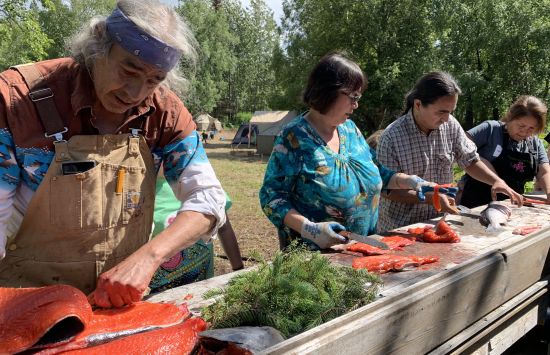
Research sites near local and Indigenous communities or their lands
Proposers preparing projects working near, with, or impacting local and Indigenous communities are strongly encouraged to engage communities early in the proposal development stages, not once the proposal is developed.
In accordance with the Interagency Arctic Research Policy Committee (IARPC) Principles for Conducting Research in the Arctic, researchers should coordinate their field activities with nearby communities and are expected to share results with communities following each field season and/or at the end of the project. Investigators should include travel funds for this in their proposal budgets.
Some projects may require discussion with tribal or subsistence co-management organizations at the proposal stage and prior to fieldwork. The project schedule should include time for these discussions and planning. Travel and salary funds for the discussions' participants should be included in the proposal budget.
Investigators interested in using the Arctic Research Support and Logistics (RSL) Program's prime logistics support contract — currently Battelle Arctic Research (ARO) should contact the ARO science project planners at arctic.planning@battelle.org in the pre-proposal stage for more information.
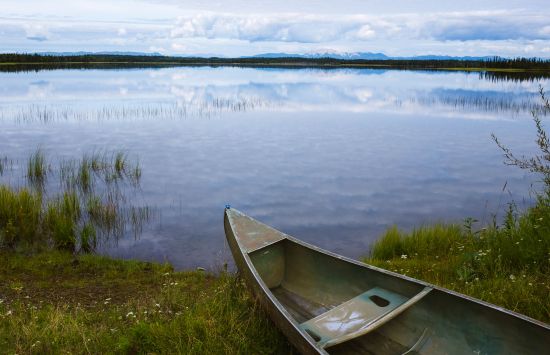
Community engagement
Community engagement refers to substantive interaction with community partner individuals, communities organizations and anchor institutions, such as governments, federal, state and local agencies; schools, libraries, health and social service providers; tribal and Indigenous-serving organizations; nonprofits; cultural organizations; and businesses.
In accordance with the IARPC Principles for Conducting Research in the Arctic, investigators and community partners are recommended to work closely to develop and evaluate creative approaches to achieving meaningful engagement for mutual benefit and scientific vitality.
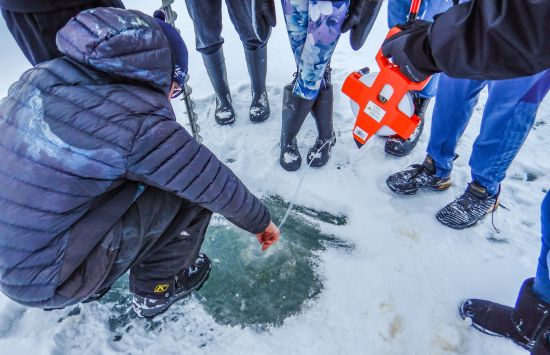
Coproduction of knowledge
NSF identifies coproduction of knowledge as the integration of different knowledge systems and methodologies to systematically understand the phenomena, systems and processes being studied in a research project. This approach should involve full engagement in the research process, from the development of research questions to the collection, use and stewardship of data and interpretation and application of results.
The coproduction of knowledge in the Arctic can take various forms, but often involves Indigenous knowledge-holders, local community members and scientists working closely together to address shared research questions, pursue shared methodologies and agree on appropriate outreach and data-sharing activities.
Investigators intending to pursue knowledge coproduction in the Arctic should begin collaboration during the development of the research questions and are recommended to put into practice the IARPC Principles for Conducting Research in the Arctic.
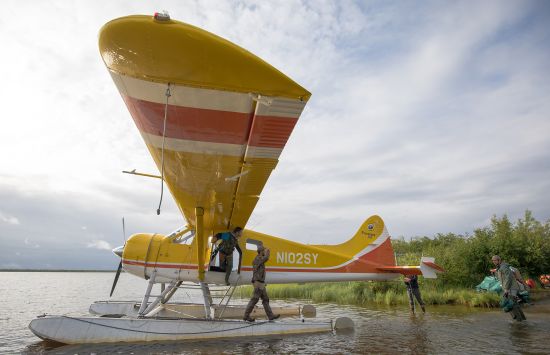
Relevant funding opportunities
Resources for researchers and Arctic communities
NSF has supported the creation of numerous resources for researchers and people living in the Arctic to better understand the entire landscape of ongoing Arctic research, access data and information related to NSF-funded research and learn more about the Indigenous peoples in the Arctic and the ethical behavior expected of NSF-funded researchers working in the Arctic.
ANSEP's objective is to effect systemic change in the hiring patterns of Alaska Natives in science and engineering by placing students on a career path to leadership. The program works with students beginning in sixth grade and continuing through high school, into science and engineering undergraduate and graduate degree programs.
The Arctic Data Center is the primary data repository for the Arctic Sciences Section (ARC) Office of Polar Programs and the Navigating the New Arctic (NNA) program. Its mission is to help the research community preserve and discover all products of NSF-funded science in the Arctic, including data, metadata, software and documents.
ARMAP funds agencies, logistics planners, research investigators, students and others to explore information about science being conducted across the Arctic. Hundreds of project locations and ship tracks are shown on an interactive web map, with easy access to details on funding agency, funding program, scientific discipline, principal investigator, project title and more.
The RSL program supports the fieldwork of research projects funded through science programs in the NSF Arctic Sciences Section. The program supports facilities and services for the research community through grants, cooperative agreements, interagency agreements, memorandums of understanding and contracts.
Scientific research in the Arctic necessitates good communication and cooperation with northern communities. This webpage by the Arctic Research Consortium of the United States lists a compilation of resources, recommendations and "good practices" from a variety of organizations.
Learn more about Conducting Research with Northern Communities.
ARIS works with scientists and engagement practitioners to build capacity, advance scholarship, grow partnerships and provide resources to help them engage with and demonstrate the impact of research in their communities and society. A key focus and task of the center is collaboration with international colleagues to share practices and resources around broader impact, knowledge mobilization, societal impacts, valorization and research uptake.
Isaaffik is the Greenlandic word for gateway. ISAAFFIK is a user-driven web platform supporting Arctic research and collaboration in Greenland. ISAAFFIK provides an overview of Arctic infrastructure; facilitates collaboration of research, education, consultancy, infrastructure and logistics; and increases fieldwork safety by making projects visible to authorities and other parties.
The NNA-CO provides leadership and coordination to support use-inspired convergence research in the Arctic. The office focuses on collaborative research that deeply draws on information and expertise from across disciplines and knowledge systems to solve complex challenges. Using a set of guiding principles and advised by research and Indigenous advisory boards, the NNA-CO builds awareness, partnerships, opportunities and resources for collaboration and equitable knowledge generation related to research projects funded through the NNA initiative.
These principles are directed at academic and federal researchers funded by IARPC agencies but are equally relevant to other individuals and organizations pursuing or funding research in the Arctic. They are guidelines for conducting responsible and ethical research and U.S. respect for all individuals, cultures and the environment. The principles are not intended to supplant existing regulations and guidelines; researchers should follow federal, state and local regulations, policies and guidelines. Research involving human subjects must adhere to specific requirements.
Acknowledging the importance of maritime subsistence activities in Arctic coastal regions, the Community and Environmental Compliance Standard Operating Procedures (CECSOP) for R/V Sikuliaq Research Operations provides guidance to scientists who intend to use R/V Sikuliaq to conduct research activities. Researchers and coastal community members use the process to discuss research cruise plans and avoid conflicts between scientific research activity and subsistence hunting or other cultural practices. In this way, the needs of both Sikuliaq researchers and coastal community members are addressed.
UIC Science assists visiting scientists conducting research on the North Slope of Alaska with their projects' logistical needs and permitting. UIC Science hires local Iñupiat staff members who are extremely knowledgeable about the Arctic environment. From Arctic orientation and facilities planning to vehicle maintenance and polar bear protection, UIC Science works to ensure researchers' needs are addressed.
Learn more about Learn more about UIC Science.
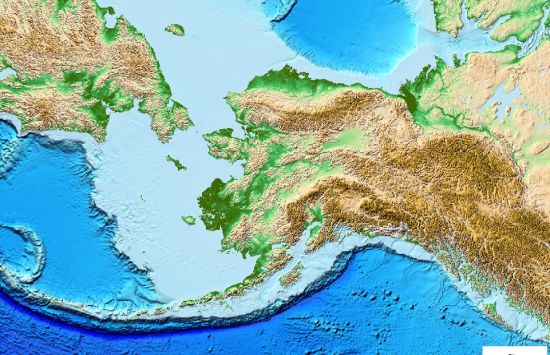
Collaborating organizations
Below you can find information on organizations NSF collaborates with to support Arctic research, education and outreach.
ARCUS enhances the engagement of Arctic Indigenous communities, organizations and peoples in research. This work is based on the recognition that much research occurs within Indigenous communities, on their land or using Indigenous knowledge; that Indigenous knowledge has its own methodologies, validation and evaluation processes; that there is a need for Indigenous community-driven research; and that Indigenous communities are a vital part of the research community.
NSF is one of 14 federal agencies that sponsor or conduct Arctic science, engineering and related activities. As mandated by the "Arctic Research and Policy Act of 1984," interagency research planning is coordinated through IARPC, which is chaired by NSF. Researchers are strongly encouraged to engage in IARPC activities through the IARPC Collaborations portal. Further information on other agency programs is presented in the U.S. Arctic Research Plan.
IASC is a nongovernmental, international scientific organization. IASC pursues a mission of encouraging and facilitating cooperation in all aspects of Arctic research in all countries engaged in such research and in all areas of the Arctic region. NSF supports the participation of U.S. researchers and academics in IASC activities. The committee promotes and supports leading-edge interdisciplinary research to foster a greater scientific understanding of the Arctic region and its role in the Earth system.
SEARCH is a collaborative program of Arctic researchers, funding agencies and others that facilitates synthesis of Arctic science and communicates our current understanding to help society respond to a rapidly changing Arctic. Funded by NSF, SEARCH currently focuses on how shrinking land ice, diminishing sea ice, and degrading permafrost impact Arctic and global systems. The convening power of SEARCH enables SEARCH's interdisciplinary action teams, as well as the wider Arctic research community, to listen to and inform agencies, policy- and decision-makers and Arctic residents.
USARC is an independent federal agency created by the "Arctic Research and Policy Act of 1984." Principal duties include:
- Establishing the national policy, priorities and goals necessary to construct a federal program plan for basic and applied Arctic research.
- Working as the lead agency responsible for implementing the Arctic research policy and supporting cooperation and collaboration throughout the federal government.
- Interacting with Arctic residents, international Arctic research programs and organizations and local institutions, including regional governments, to obtain the broadest possible view of Arctic research needs.
Contact us
For questions or additional information about Arctic community engagement and NSF, please contact ACE@nsf.gov.

